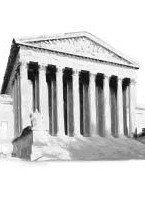Lewis Carroll'ın “Alice Harikalar Diyarında” Eserinin P4C Çalışmaları Bağlamında Kullanım Olanağının Değerlendirilmesi
Felsefe, Çocuk, Çocuk Edebiyatı, Lipman, Carroll
Evaluation of the Possibility of Using Lewis Carroll's “Alice's Adventures in Wonderland” in the Context of P4C Studies
Philosophy, Children, Children's Lİterature, Lipman, Carroll,
___
- Akarsu, B. (1998). Felsefe Terimleri Sözlüğü (13. Basım). İstanbul: İnkılap Kitabevi.
- Aristoteles. (1996). Metafizik. (çev. Ahmet Arslan). 2. Baskı. İstanbul: Sosyal Yayınları.
- Arslan, A. (2009). Felsefeye Giriş (12. Basım). Ankara: Adres Yayınları.
- Bayhan, P. S. ve Artan, İ (2005). Çocuk Gelişimi ve Eğitimi. İstanbul: Morpa Yayıncılık.
- Bee, H. ve Boyd, D. (2009). Bilişsel Gelişim. (Çev. O. Gündüz), Çocuk Gelişim Psikolojisi içinde (s.309-371). İstanbul: Kaknüs Yayınları.
- Boyacı, N. P., Karadağ, F., & Gülenç, K. (2018). Çocuklar için felsefe/çocuklarla felsefe: felsefi metotlar, uygulamalar ve amaçlar. Kaygı. Bursa Uludağ Üniversitesi Fen-Edebiyat Fakültesi Felsefe Dergisi, (31), 145-173.
- Carroll, L. (2023). Alice Harikalar Diyarında (16. Basım) (Çev. S. Ezber). İstanbul: Türkiye İş Bankası Kültür Yayınları.
- Dürüşken, Ç. (2014). Antikçağ Felsefesi: Homeros' tan Augustinus'a Bir Düşünce Serüveni. İstanbul: Alfa.
- Erdiller-Yatmaz, Z. B., Erdemir, E., & Erbil, F. (2018). Çocuk ve çocukluk: Okulöncesi öğretmen adayları anlatıyor. Eğitimde Nitel Araştırmalar Dergisi, 6(3), 284-312.
- Gökberk, M. (1993). Felsefe Tarı̇hı̇. İstanbul: Remzi Kitabevi.
- Karakaya, Z. (2006). Günümüz Çocuk Edebiyatında Seçilmiş Çocuk Felsefesi Örnekleri, Türkoloji Dergisi, 2, 21-39.
- Lipman, M. (1976). Philosophy For Children. Metaphilosophy, 7(1), 17-39.
- Lipman, M. (1999, February). What is Happening with P4C?. In The Proceedings of the Twentieth World Congress of Philosophy (Vol. 3, pp. 21-26).
- Lone, J. M. (2012). The Philosophical Child. Rowman & Littlefield Publishers.
- Oyler, J. (2016). Philosophy with children: The Lipman-Sharp approach to philosophy for children. Encyclopedia of educational philosophy and theory, 1-7.
- Platon. (2005). Devlet (çev. Cenk Saraçoğlu – Veysel Atayman). İstanbul: Bordo – Siyah Yay.,
- Russell, B. (2002). Batı Felsefesi Tarihi – İlkçağ (Çev. M. Sencer). İstanbul: Say Yayınları.
- Özcan, S., Sallabaş, M. E., Akgül, S. (2022). Okuma Eğitiminde P4C Temelli Soru Sorma Eğitiminin İşbirlikli Öğrenmeye Etkisi. Ana Dili Eğitim Dergisi, 10(2), 327-346.
- Tunalı, İ. (2009). Felsefeye Giriş (2. Basım). İstanbul: Altın Kitaplar Yayınevi.
- Turgut, İ. (1993). Sanat Felsefesi. İzmir: Üniversite Kitabevi Yayınları.
- Vansieleghem, N., & Kennedy, D. (2011). What is philosophy for children, what is philosophy with children—After Matthew Lipman?. Journal of Philosophy of Education, 45(2), 171-182.
- Ventista, O. M. (2018). A literature review of empirical evidence on the effectiveness of Philosophy for Children. Parecidos de familia. Propuestas actuales en Filosofía para Niños/Family ressemblances. Current proposals in Philosophy for Children, 448-469.
- Williams, L. (2003). Çocuğunuzu Keşfedin (çev. M. Koyuncu). İstanbul: Hayat Yayınları.
- Yayın Aralığı: Yılda 2 Sayı
- Başlangıç: 2002
- Yayıncı: Bursa Uludağ Üniversitesi
P4c’de Ebeveyn İle İşbirliği: “Zihinsel Bağışıklık” Temalı İçerik Önerisi
Türkiye’de Lisans Ve Lisansüstü Düzeyde Verilen Çocuklarla Felsefe Derslerine Yönelik Bir İnceleme
Feminist Epistemoloji Aracılığıyla “Çocuklar İçin Felsefe”nin Gerekçelendirilmesi
Çocuk Haklarının Kısa Felsefi Tarihinde ‘Çocuklar için Felsefe’
Öğretmenlerin Çocuklar İçin Felsefe (P4C) Eğitiminde Yaşadığı Sorunlar
Nurten KODAZ ÖCAL, Birsel AYBEK
İlkokul Öğrencilerinin P4c Destekli Matematiksel Modelleme Uygulamaları: Bir Öğretim Deneyi
Eğitimde Felsefi Sorgulama ve Çocuklar İçin Felsefe(P4C)
Bir Bilgelik Eğitimi Olarak Çocuklarla Felsefe
Platon’un Çocuk ve Çocuk Eğitimi Üzerindeki Görüşlerinin P4C Açısından Değerlendirilmesi
